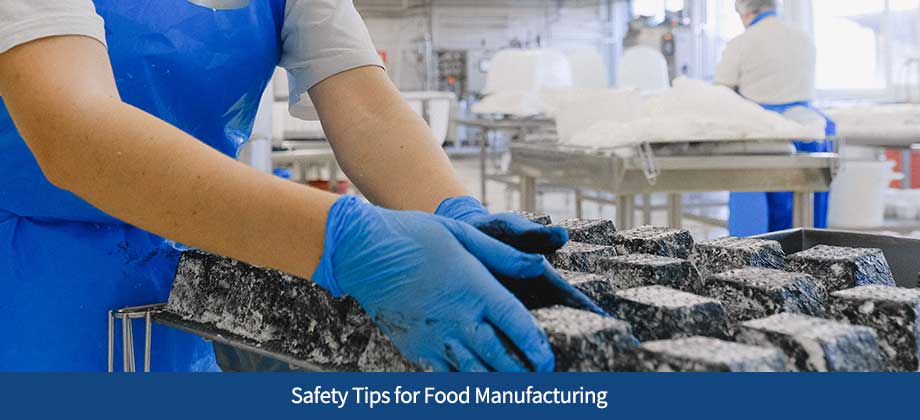Safety Tips for Food Manufacturing

When it comes to the food manufacturing industry, food safety is top of mind—all the time. After all, the products made throughout the process will one day be ingested by its literal consumers across a global supply chain. While there are already food handling guidelines outlined by the government, additional measures on top of these can further enhance your safety strategy.
Proper Machine Use and Maintenance
To ensure correct use, every piece of equipment in a manufacturing plant has a set of guidelines that need to be adhered to. Start using them improperly and you risk not only the integrity of the machine, but the quality of the resulting goods. Step one in increasing the safety of your business and employees? Make certain everyone is properly trained on every piece of equipment they’re handling.
Just as you take your car in for regular oil changes and tune-ups, the same should be said for your plant equipment—especially since your end product is food. Broken machines can have a snowball effect on the safety of your employees and your consumers: workers can get seriously injured, and these injuries have the potential to cause severe damage to the quality and safety of your manufactured goods. The last thing you want is a traceback investigation to point its finger at your plant. A little practice called preventative maintenance (aka “fixing something before it breaks”) is key to success, here. Ideally a maintenance team will inspect and service your most critical pieces of equipment on a regular schedule to reduce the possibility of injury and contamination.
Double-Down on Sanitation
The best way to prevent foodborne illnesses? Sanitation. Foods can be contaminated throughout any step of the production process, which is why it’s critical that your manufacturing steps are well documented and include any details that could help determine where a contamination originated. Your staff should also be outfitted in the proper protective gear for the food manufacturing process, such as gloves, hair nets, facial coverings, and coveralls. These measures not only aim to protect the general public from contamination but lessen your employees’ exposure to harmful bacteria as well. Check out the basics of sanitation in food plants here.
Get (More) Organized
A well-organized workspace is key to success, regardless of your industry. But the stakes are higher when it comes to food manufacturing, which means organization should be in the spotlight. Your facility should run like a well-oiled machine (and that oil should be labeled, by the way). Keep your cleaning products labeled and stocked; make sure there are never any cables, wires or other hazards around that could injure someone; and document all your procedures in an accessible place that can be referred to quickly by any staff member. An organized workplace makes for greater efficiency, greater safety, and greater output.
Following government mandates and including your own safety provisions can help manufacturers maintain their reputations in the industry and with the public. Spend time laying out a process to service machinery regularly, improve staff training, increase sanitation measures, and get organized. The results could keep you out of hot water down the line.
Your privacy is important to us. ARF Financial will never sell or rent your information to any third party. Click here for more information about our privacy policy.

